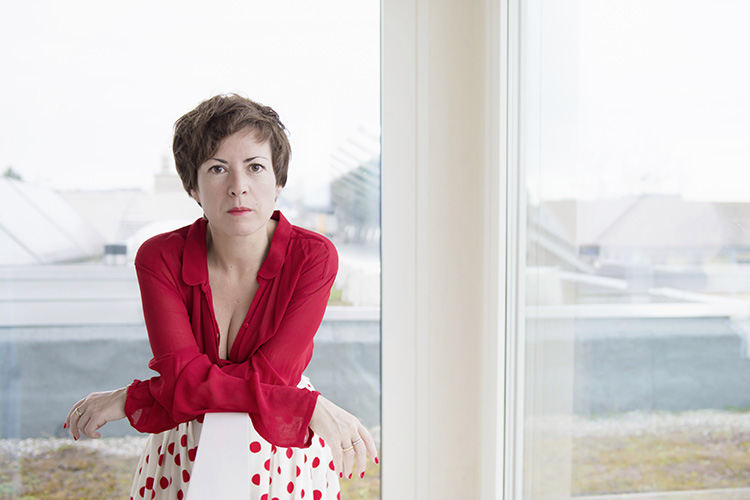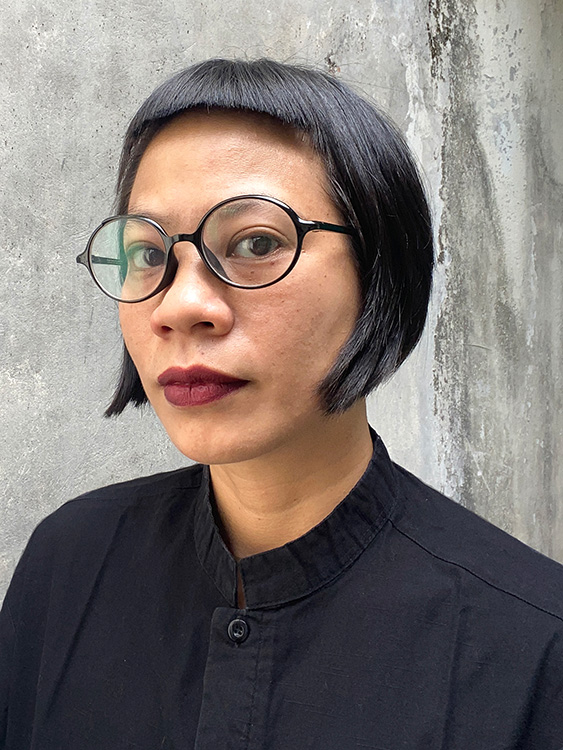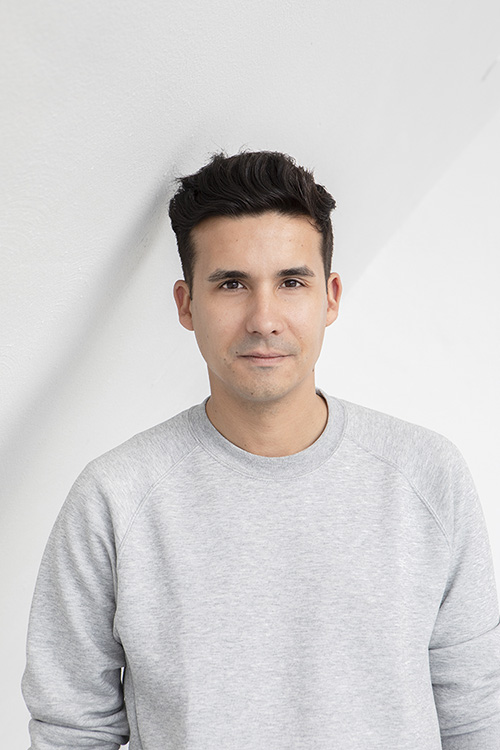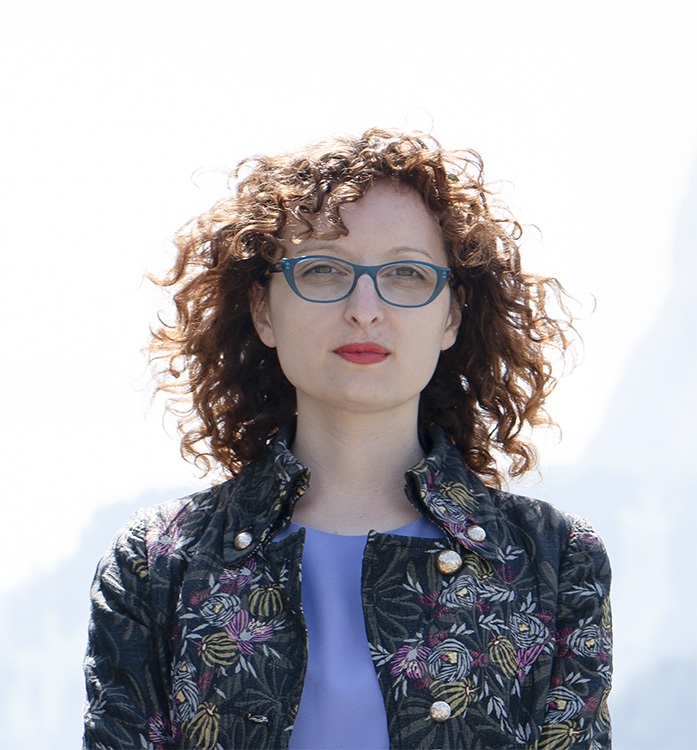
Program & Schedule of the 8th General Assembly of IBA “Working Towards a Sustainable Biennial Model”
IBA Stage: 34th Ljubljana Biennial of Graphic Arts “ISKRA DELTA”
25 November 2021IBA Stage: Nevenka Sivavec
30 November 2021
Image: IBA Office.
IBA, the International Biennial Association, is pleased to announce its 8th General Assembly which will be held online on December 16th and 17th of 2021 due to the current uncertainty in regards to travel possibilities. The two-day event comprising public panels and focused workshops will provide a platform for our members and the wider audience to gather under the title, “Working Towards a Sustainable Biennial Model”.
This year’s assembly will focus on ways to imagine a sustainable future for biennials in light of the current pandemic but more so considering the ongoing climate crisis. Within this context, sustainability assumes both ecological and economic/social value, forcing us to imagine radically different modes to operate if biennials are to maintain their role as key experimental spaces within the global art environment.
CLICK HERE TO REGISTER FOR THE 8TH GENERAL ASSEMBLY OF IBA.
PUBLIC PROGRAM (DECEMBER 16TH)
Keynote: The Great Transformation: Biennials as Producers of Future Scenarios
The public program will include a keynote speech by Chus Martínez, Head of the Institute Art Gender Nature, HGK, Fhnw and Artistic Director of Ocean Space in Venice (TBA21 Academy), with the title “The Great Transformation: Biennials as Producers of Future Scenarios,” which will unfold some of the questions linking the climate crisis, the pandemic, new artistic practices, and institutional formats.
PASS Panel: Assessing for Sustainability
The keynote speech will be followed by a panel discussion titled “Assessing for Sustainability,” organised by PASS: Journal of the International Biennial Association with the participation of Grace Samboh of Jakarta Biennial, João Laia of Baltic Triennial 14, and moderated by Lucia Pietroiusti, Founder of General Ecology Project in Serpentine. The editorial committee of PASS is Sylvie Fortin (Chief Editor), Anne Barlow, Basak Senova, and Bige Örer.
The sustainability of biennials calls for a radical redefinition of the criteria by which they are assessed. It is crucial for biennials and the biennial field to lead this conversation, develop a compelling case, and gain support of and for a wide range of public and private stakeholders. How do biennials center their missions and values, and most specifically collaboration and sustainability, in their vision of success?
FOCUS GROUPS (DECEMBER 17TH)
In addition to the public program, this year’s program will also include a series of focus groups for IBA Members which will take place on December 17th to engage in conversations about the following topics:
- Evaluation Methods
The group will focus on questions around which parameter biennials are evaluated and how these could be communicated differently to sponsors, supporters and the wider public. Especially in a time in which uncertainty gives us all the impossibility to plan exhibitions and public programs accurately, how can we rethink the model and the way it can create the impact our sponsors demand.
- Co-production and Partnerships
One of our core beliefs is that IBA can function as a catalyst for institutional collaboration to make better use of funding and efforts for our projects. The group will focus on questions of how to structure collaborations beyond the funding and touch the wider subject of sustainability of the model itself. What strategies can we imagine to pull these resources together and what tools can IBA provide to facilitate these?
- Funding Strategies
This group will reflect on whether traditional sources of funding can still give the model a sustainable future, and if there is the need to re-address key elements of what a biennial is in order to give it long term sustainability and what would it mean to rethink these elements. What alternative sources of funding can we imagine and how can we work together as IBA to create synergies in fundraising strategies?
- Reducing Our Carbon Footprint
Essential questions this group will tackle, to assure that biennials not only stand the test of climate change but also continue to be a laboratory for the most relevant artistic practices worldwide, would include how can we imagine reducing, controlling and monitoring the overall carbon footprint of our biennials? What can be immediate decisions we can take in our institutions and which structural elements need to be addressed to make the model feasible in light of the overall need to change ways in which we treat the environment?
- Crisis Management During a Pandemic
The past two years have affected cultural institutions worldwide with delays, postponements and cancellations due to the ongoing pandemic. How have biennials dealt with these challenges and what teachings did we draw from the situation? In what ways has this period affected the way we think about future events, in what ways can we learn from our local constituencies’ response and how do we reassess our international audience? What role do digital platforms offer and which danger can emerge from them? All of these are relevant questions which will guide the working of this group.
Those who are interested in participating in these discussions are requested to send an email to info@biennialassociation.org with their top two preferences for the focus groups they would like to be a part of. As spaces are limited, priority will be given to the order we receive replies in.
SCHEDULE
December 16, 2021 3:00pm – 5:00pm (London)
Public Program
- 3:00pm – 3:05pm Introduction to the 8th General Assembly & Keynote
- 3:05pm – 3:35pm Keynote: “The Great Transformation: Biennials as Producers of Future Scenarios”
- Keynote Speaker: Chus Martínez
- 3:35pm – 3:45pm Q&A
- 3:50pm – 3:55pm Introduction to PASS Panel
- 3:55pm – 4:35pm PASS Panel: “Assessing for Sustainability”
- Featuring: Lucia Pietroiusti, Grace Samboh, João Laia
- 4:35pm – 4:45pm Q&A
- 4:45pm – 4:50pm Closing (5 min)
December 17, 2021 3:00pm – 5:00pm (London)
Focus Group & Formalities
- 3:00pm – 3:10pm Opening & Introduction
- 3:10pm – 3:50pm Focus Group Discussions
- 3:50pm – 4:10pm Focus Group Summaries
- 4:10pm – 4:20pm Break (Switch to Members Only)
- 4:20pm – 4:50pm Updates from IBA Office + Website Tour + Voting Topics*
- 4:50pm – 5:00pm Voting + Results + Conclusion*
*Members Only
ABOUT THE PARTICIPANTS

Chus Martinez. Photo by Nici Jost.
Chus Martínez was born in Spain, has a background in philosophy and art history. For the 56th Biennale di Venezia (2015), Martínez curated the National Pavilion of Catalonia, and for the 51st edition the Cyprus National Pavilion (2005). Currently Chus Martínez is the Head of the Institute of Art of the FHNW Academy of Arts and Design in Basel, Switzerland. From 2021 on she will be the artistic director of the Ocean space in Venice, a project initiated by the TBA21 Academy. She is also curator at large of The Vuslat Foundation in Istanbul.

Courtesy of Hyphen —.
Grace Samboh lives and works either in Yogyakarta, Jatiwangi, Jakarta or Medan. She is in search of what comprises a curatorial work within her surrounding scene. She is attached to Hyphen —, affiliated to RUBANAH Underground Hub, and struggling to pursue a doctorate in the Arts and Society Studies, at the Sanata Dharma University, Yogyakarta. Grace is also one of the curators for the Jakarta Biennale 2021: ESOK as well as Collecting Entanglements and Embodied Histories a joint venture between Galeri Nasional Indonesia, MAIIAM Contemporary Art Museum, Singapore Art Museum, Nationalgalerie – Staatliche Museen zu Berlin, and Goethe-Institut (2021-2022).

João Laia. Finnish National Gallery / Pirje Mykkänen.
Joao Laia is the chief curator for exhibitions at Kiasma – Helsinki. He has a background in social sciences, film theory and contemporary art. Recent projects include Máscaras/Masks (2020) and 10000 Years Later Between Venus and Mars (2017-18) at Oporto City Hall Gallery, In Free Fall (2019) at CaixaForum, Barcelona, Vanishing Point (2019) at Cordoaria Nacional, Lisbon, Drowning in a Sea of Data (2019) and Transmissions from the Etherspace (2017) at La Casa Encendida, Madrid, foreign bodies (2018) at P420, Bologna, H Y P E R C O N N E C T E D (2016) at MMOMA – Moscow Museum of Modern Art; or Hybridize or Disappear (2015) at MNAC – National Museum of Contemporary Art in Lisbon. Laia co-curated the 19th and 20th editions of the contemporary art festival Videobrasil (2014–18). Together with Valentinas Klimašauskas, he curated the 14th Baltic Triennial titled The Endless Frontier (2021).

Lucia Pietroiusti. Photo by Thaddäus Salcher.
Lucia Pietroiusti is a curator working at the intersection of art, ecology and systems, usually outside of the gallery format. She is the founder of the General Ecology project at Serpentine, London; and is currently developing the Institute for General Ecology. Pietroiusti is the curator of Sun & Sea (Marina), the Lithuanian Pavilion at the 58th Venice Biennial. She is the curator of the second edition of POWER NIGHT at E-Werk Luckenwalde, titled Being Mothers. Pietroiusti was one of the curators of the 13th Shanghai Biennale, Bodies of Water. Together with Filipa Ramos, she will be the curator of the 8th Biennale Gherdeïna, Persons Persone Personen, in May 2022. In 2022, Pietroiusti will also join James Bridle in curating a section of the Helsinki Festival, dedicated to artificial and more-than-human intelligences.
IBA is a nonprofit arts association created as a platform for establishing, researching and exchanging knowledge and information necessary for institutions and professionals who plan and curate periodic art events such as biennials and triennials, as well as artists, researchers and others concerned with contemporary art. IBA is a centre for producing multidisciplinary discourse that embodies the productive and discursive voices of the contemporary art world.
For any questions pertaining to IBA or the 8th General Assembly, please contact us at info@biennialassociation.org.


